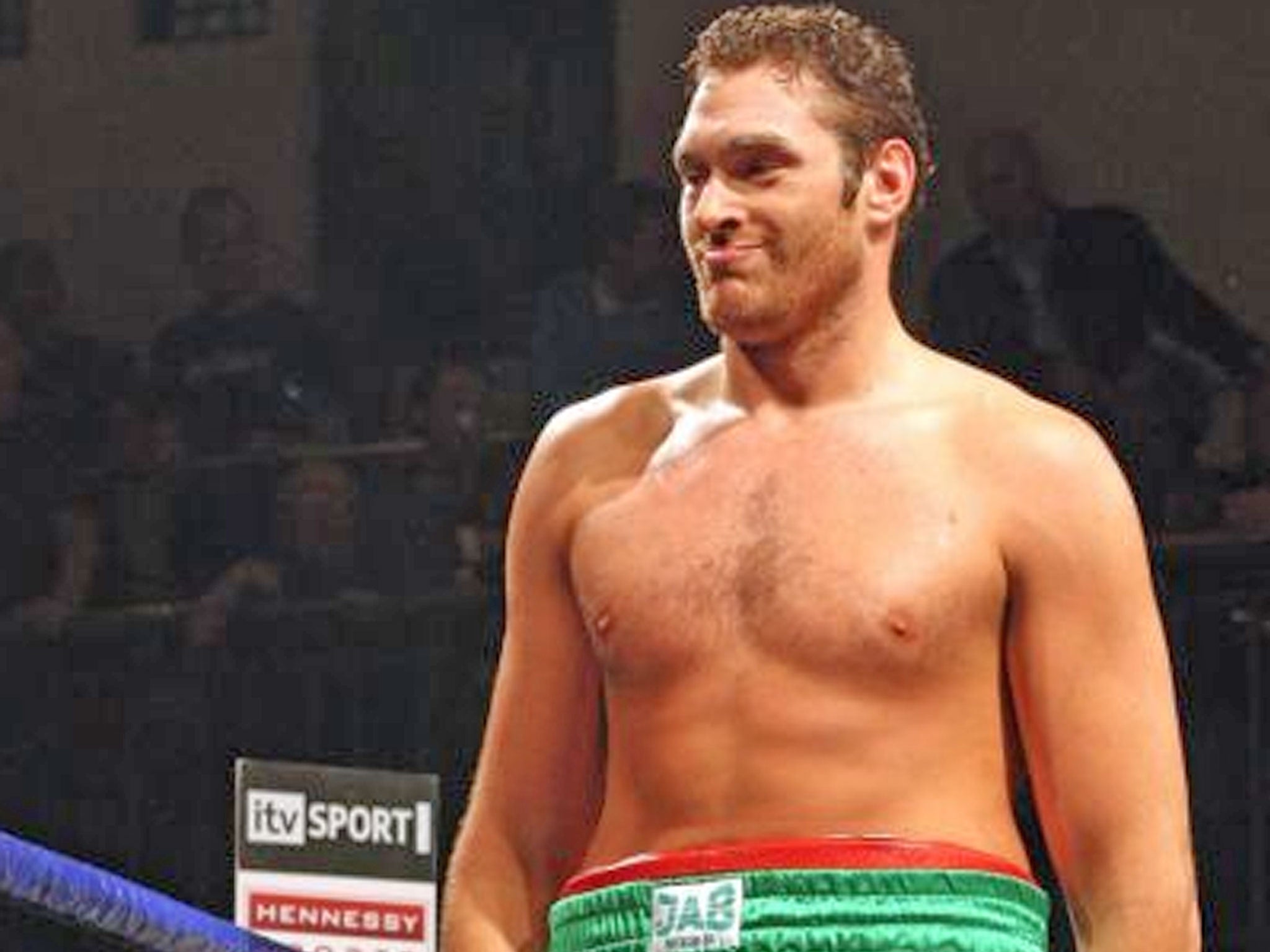Kevin Garside: Tyson Fury should note that Muhammad Ali's poetry embroidered his genius in the ring
The Way I See It: It is for us to give credit where it's due, Tyson, not for you to claim it

A little more than half a century ago a young Olympic champion suffered the first knockdown of his boxing career on his maiden outing at Madison Square Garden.
Though he climbed off the deck to fulfil his prophecy of victory in four, the episode forced a degree of contrition upon the post-fight commentary.
“That was my first time knocked down as a professional. I had to get up to take care of things after that because it was rather embarrassing, me on the floor. As you know, I think that I'm the greatest and I'm not supposed to be on the floor, so I had to get up and put him on out, in four as I predicted.”
Thus spoke Cassius Clay in February 1962 following his win against Sonny Banks. Clay's bombastic schtick would reach a British audience a year later when he fought Henry Cooper at Wembley. He bounced off the carpet to win that, too. The following year Clay went global with the dethroning of a second Sonny, the great bear Liston. That was the last we saw of Clay, who became Muhammad Ali ahead of the rematch and by the decade's end one of the most recognisable figures on earth.
In quasi-tribute to the Louisville Lip, Tyson Fury treated a New York audience last week to a 21st-century strain of boxing self-promotion in the build-up to his own debut at Manhattan's Mecca against Steve Cunningham. The Wilmslow Lip delivered his turgid rhetoric as if it were something new, as if he were introducing to boxing a dimension never before seen. He even took to referring to himself in the third person to add a bit of gravitas.
“I'm the best fighter on the planet, including all sizes, because there is not a man born from his mother who can beat Tyson Fury,” he bawled. “I don't care if he is 7ft or 3ft tall. Steve Cunningham is in big trouble. Come April 20 this guy is getting knocked spark out, guaranteed, 100 per cent. Steve Cunningham, with the whole of Philadelphia behind him, couldn't beat me together. There have been a lot of fighters in the world that didn't want to fight Tyson Fury. You've got to give credit where credit is due.”
Indeed you do, Tyson, but it is for us to give it not you to claim it. Besides, it would be nice if you were to throw in a rhyme every now and then, just to ease the listener's embarrassment. It is an affront to the sport and to Ali's memory to line up Fury in the same sentence as the man voted the 20th century's greatest athlete. Fury would be on firmer ground were he to substantiate his boasts with, first, a body of work, second, a degree of charm, and third, a breath of humour. Something from the Kennedy McKinney school of one-liners, perhaps. Sledging his opponent Junior Jones at the pre-fight head-to-head at the Garden 15 years ago, McKinney warned: “Your ass is grass, and I'm the lawnmower.” He was, too, winning in four on the back of a rhyme and a pun I'd never heard before.
Fury has a willing accomplice on the fairground hustings in Dereck Chisora, who told us last week that boxing is dead. Don't worry, Chisora knows how to revive it. And that is through “characters” like him, he says, once again failing to distinguish between shock and awe. Chisora and Fury both confuse the capacity to make headlines with the ability to stir the imagination.
Chisora is a hard man. That much has to be acknowledged. Fury, too. Fighting is all they know. Both would enter the cage with a lion, promising to put meat on the table at the end of the bout. But hard lads do not necessarily make successful boxers. Indeed, unbridled courage can be a bad thing since it leads you into the path of danger from which there can be no escape.
Since he remains unbeaten, despite failing to match the potency of his name, Fury has yet to learn this lesson. Chisora, on the other hand, walked chin first into the superior weaponry of David Haye eight months ago and was comprehensively taken apart. Whatever shortcomings Haye might reveal against world class heavyweights, at cruiser he will gorge all day long on pretenders.
The Ali show was carried not by his iambic banter but the poetry of his fists. The rhyming rhetoric embroidered the genius revealed in the ring. Both attributes, the oral accompaniment of the physical beauty, were unprecedented in sport, and consumed for the first time by a global audience courtesy of the cathode ray tube.
Fury and Chisora have the advantage of digital reach but lack a calling card imprinted with boxing authenticity as defined by the Queensberry Rules. At some point Fury's bluster is going to run into the corrective force of the better boxer, just as Chisora discovered against Haye, and Haye against Wladimir Klitschko. That's why they call boxing the truth game.
Subscribe to Independent Premium to bookmark this article
Want to bookmark your favourite articles and stories to read or reference later? Start your Independent Premium subscription today.

Join our commenting forum
Join thought-provoking conversations, follow other Independent readers and see their replies